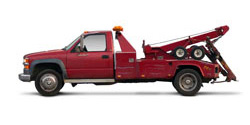
A "conversion" means a motor vehicle, other than a motor home, ambulance, or fire-fighting vehicle, that:
- has been substantially modified by a person other than the manufacturer or distributor of the chassis of the motor vehicle; and
- has not been the subject of a retail sale.
A "converter" means a person who before the retail sale of a motor vehicle:
- assembles, installs, or affixes a body, cab, or special equipment to a chassis; or
- substantially adds, subtracts from, or modifies a previously assembled or manufactured motor vehicle other than a motor home, ambulance, or fire-fighting vehicle.
A "retail sale" is defined as any sale of a motor vehicle other than:
- a sale in which the purchaser acquires a vehicle for resale; or
- a sale of a vehicle that is operated under and in accordance with Section 503.061 of the Texas Transportation Code, which allows for the use of metal dealer's license plates.
Neither converters nor their representatives are allowed to sell the new motor vehicles they convert directly to Texas consumers, including municipalities. Only dealers that are franchised and licensed for the underlying line-make of the converted vehicle are allowed to sell converted vehicles to Texas consumers. If a converted new motor vehicle is sold through a bid process, a franchised dealer for the underlying chassis line-make must be listed on the bid as the seller.
The converter is not required to purchase the motor vehicle it will convert from a Texas franchised dealer. However, once the conversion is complete, the vehicle can only be sold to the end-user by a franchised and licensed Texas motor vehicle dealer for the underlying chassis line-make. The franchised dealer must invoice the end-user for the entire purchase price of the vehicle, including the conversion package, obtain payment for the entire purchase price, and perform the titling work on the complete vehicle. How the converter is paid for the conversion package and conversion work is between the converter and the franchised dealer.
Substantial modifications performed on vehicles that have already been the subject of a retail sale are considered “after-market” conversions, and are not subject to regulation by Texas Department of Motor Vehicles.
If a person makes substantial modifications to a new motor vehicle and the resulting product is an ambulance, fire-fighting vehicle, or motorhome, as those terms are defined in Chapter 2301 of the Texas Occupations Code, then the person must obtain a manufacturer license, not a converter license. However, if even one of the conversions produced does not meet the exact definition of ambulance, fire-fighting vehicle, or motorhome, then a converter license, as well as a manufacturer license, is required.
Converters are not required to be physically located in Texas. Even if the converter is located in another state, as long as new motor vehicles they convert are sold in Texas, the converter must have a converter license issued by Texas Department of Motor Vehicles.
